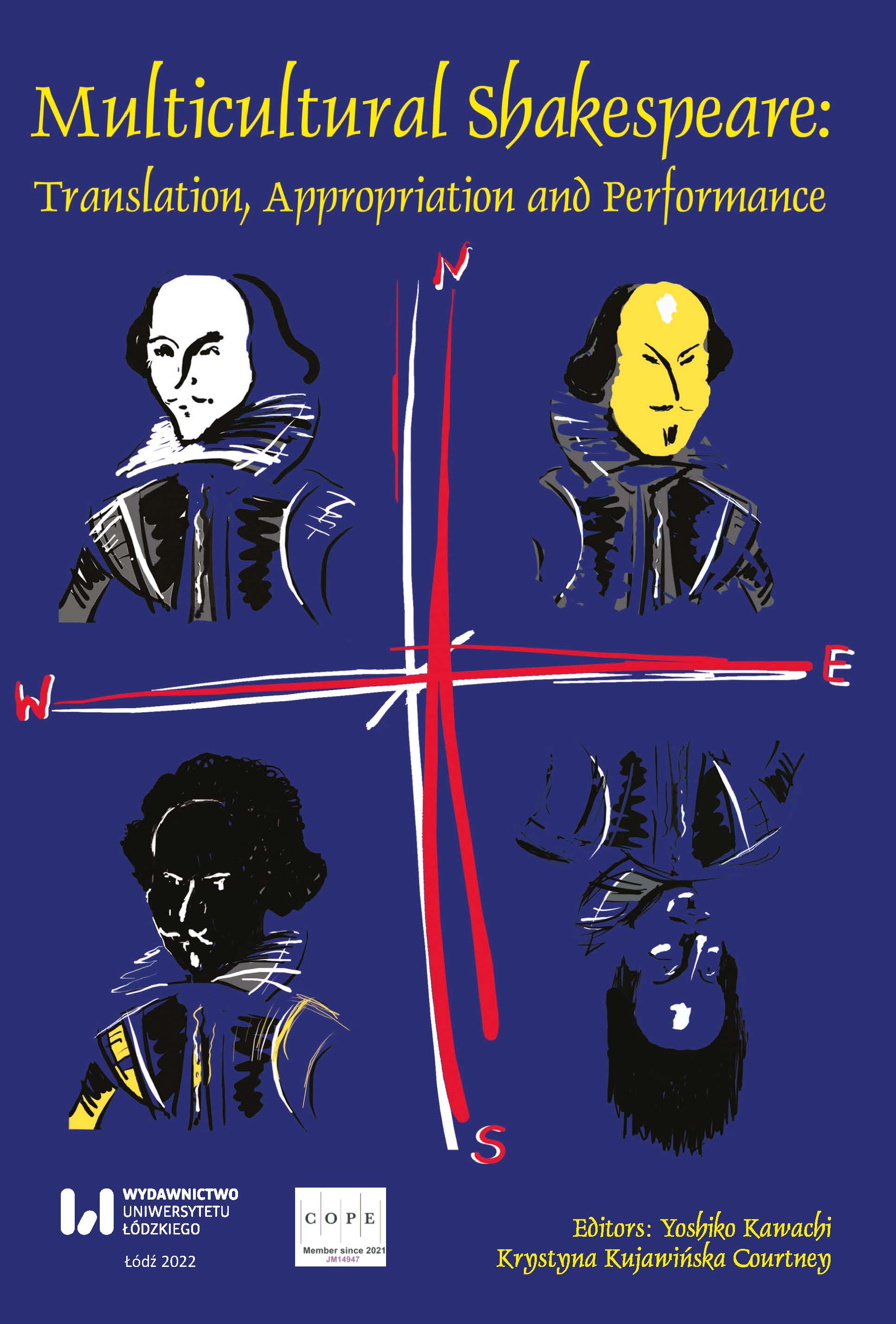“Nor doth this wood lack worlds of company:” the American Performance of Shakespeare and the White-Washing of Political Geography
“Nor doth this wood lack worlds of company:” the American Performance of Shakespeare and the White-Washing of Political Geography
Author(s): John M. MeyerSubject(s): Language and Literature Studies, British Literature
Published by: Wydawnictwo Uniwersytetu Łódzkiego
Keywords: Shakespeare in performance; utopia; race; slavery; Early Modern history; Black; African American; Public Theatre; American Shakespeare Center; Oregon Shakespeare Festival; Texas
Summary/Abstract: The paper examines the spatial overlap between the disenfranchisement of African Americans and the performance of William Shakespeare’s plays in the United States. In America, William Shakespeare seems to function as a prelapsarian poet, one who wrote before the institutionalization of colonial slavery, and he is therefore a poet able to symbolically function as a ‘public good’ that trumps America’s past associations with slavery. Instead, the modern American performance of Shakespeare emphasizes an idealized strain of human nature: especially when Americans perform Shakespeare outdoors, we tend to imagine ourselves in a primeval woodland, a setting without a history. Therefore, his plays are often performed without controversy—and (bizarrely) on or near sites specifically tied to the enslavement or disenfranchisement of people with African ancestry. New York City’s popular outdoor Shakespeare theater, the Delacorte, is situated just south of the site of Seneca Village, an African American community displaced for the construction of Central Park; Alabama Shakespeare Festival takes place on a former plantation; the American Shakespeare Center in Staunton, Virginia makes frequent use of a hotel dedicated to a Confederate general; the University of Texas’ Shakespeare at Winedale festival is performed in a barn built with supports carved by slave labor; the Oregon Shakespeare Festival takes place within a state unique for its founding laws dedicated to white supremacy. A historiographical examination of the Texas site reveals how the process of erasure can occur within a ‘progressive’ context, while a survey of Shakespearean performance sites in New York, Alabama, Virginia, and Oregon shows the strength of the unexpected connection between the performance of Shakespeare in America and the subjugation of Black persons, and it raises questions about the unique and utopian assumptions of Shakespearean performance in the United States.
Journal: Multicultural Shakespeare: Translation, Appropriation and Performance
- Issue Year: 26/2022
- Issue No: 1
- Page Range: 119-146
- Page Count: 28
- Language: English

